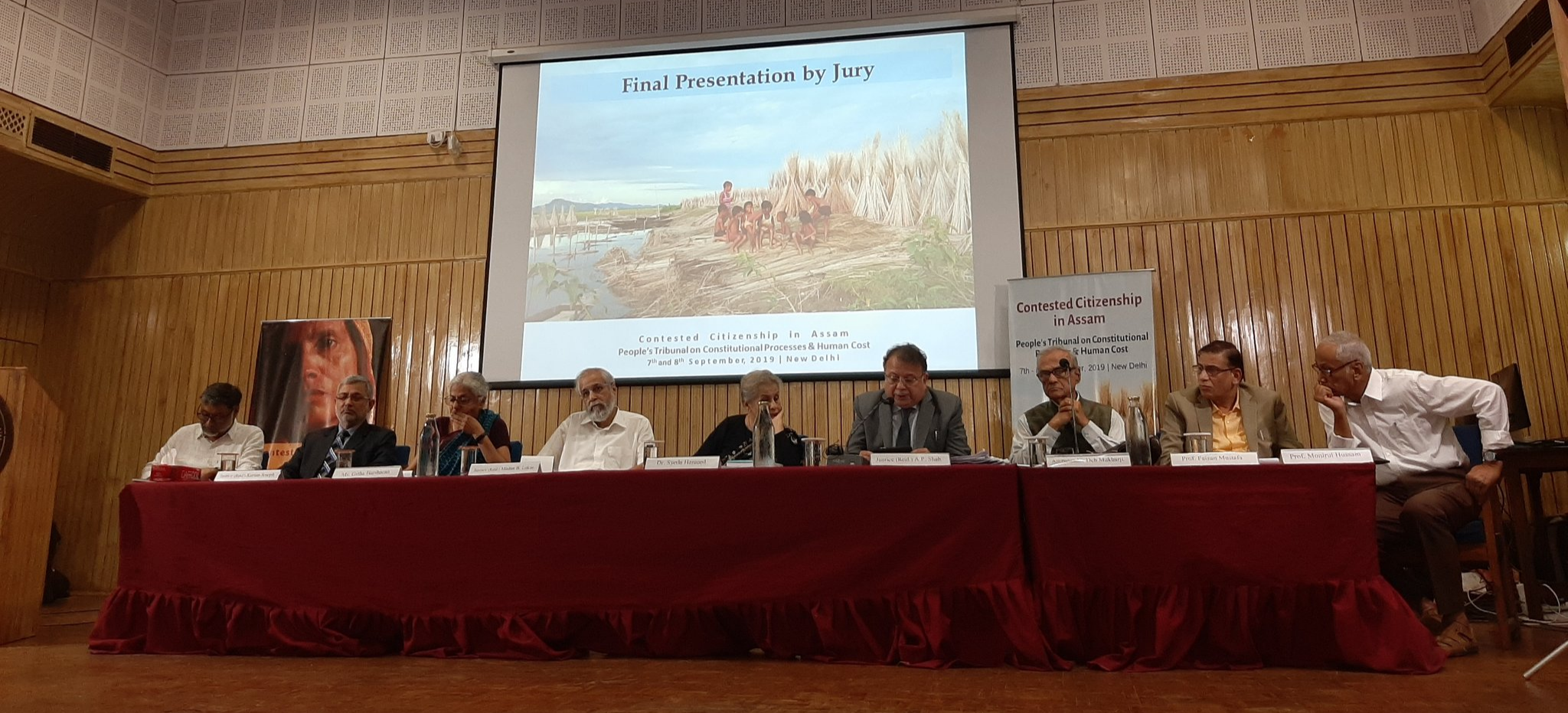The ‘People’s Tribunal’ on ‘Contested Citizenship in Assam: Constitutional Processes and Human Cost’, warned of serious implications if the NRC process is extended to all of India. The tribunal said NRC has the potential of increasing ‘vulnerability’ and spawning an enormous humanitarian crisis, by targeting vulnerable individuals and groups.
The tribunal, which held its discussions over the weekend in Delhi, also pointed out flaws in the Supreme Court’s role in the compilation of Assam’s NRC and strongly indicted the apex court in its handling of the issue.
“The Supreme Court has erroneously equated migration with external aggression and dehumanised migrants,” the jury observed after a two-day public hearing. “Despite the scale of the exercise, the judiciary’s insistence on setting deadlines has increased the pressure on both the process and the people involved,” the jury added.
The tribunal’s jury comprised two retired Supreme Court judges – Madan Lokur and Kurien Joseph – apart from former Delhi High Court Chief Justice AP Shah, former diplomat Deb Mukharji, writer Githa Hariharan, activist Syeda Hameed, and academics Monirul Hussain and Faizan Mustafa. The tribunal was organised by a collective of non-governmental organisations and movements. The jury heard individual testimonies from affected people from Assam and opinions of legal experts, including advocates Aman Wadud, Gautam Bhatia, Vrinda Grover and Mihir Desai.
The jury members expressed scepticism in the autonomy of Foreigners Tribunals as they were under direct executive influence in terms of tenure and salary allowances.
In this regard, Justice Lokur said that the “tribunals are functioning in an arbitrary manner whereby they devise their own procedure for functioning. This requires some uniformity. The poor and illiterate cannot understand the complicated processes and are excluded for minor spelling mistakes, etc.”
The jury emphasised that citizenship is the “right to have rights, is one of the most basic, fundamental human rights in modern societies”.
“The fear of getting excluded from the NRC, being declared as a foreigner and finally being sent to a detention centre, has created a situation of permanent paranoia among the vulnerable communities, especially Bengal-origin Assamese Muslim and Bengali Hindus living in the state of Assam,” the jury said.
The jury members also heard the views and experiences of people who had been excluded from the final list. Exclaiming that the NRC process led to a humanitarian crisis, the jury criticised the Supreme Court’s verdict in Sarbananda Sonowal v. Union of India, W. P. (C) No. 119 of 2006, whereby the burden of proving citizenship was wrongly cast upon the individual accused of being a foreigner instead of the State. The members said that the verdict “dehumanised” migrants and transgressed their rights to personal liberty.
They stated that the question of linguistic and cultural of a particular group of people being allegedly threatened could not justify the human cost in the NRC process. The “impoverished and unlettered” were placed under constant paranoia of getting excluded from the NRC. Ms. Githa Hariharan stated that the process had severely affected the women and child population of the region. “Being put through a “maze” of an ill-conceived and poorly executed process which is arbitrary and random which does not see the real difficulties of people, of finances, of families, need to stay together, it is reducing people to non-people”, she said.
Speaking extensively on the human cost implications of the NRC process, Prof. Faizan Mustafa suggested that efforts should be made to uphold international conventions and the rights of people to nationality under international law.
The members also raised concerns on the Central government notification dated July 31 whereby the Registrar General of India has been directed to update the ‘National Population Register’ (NPR) from April to September 2020. NPR is the register containing details of persons usually residing in a village or rural area or town or ward or demarcated area. The members were of the view that this register violated the right to privacy and provided scope to target vulnerable individuals and groups.





